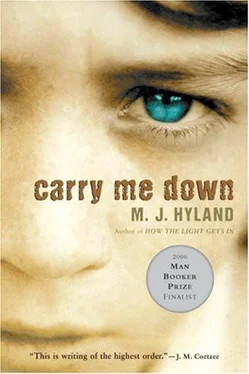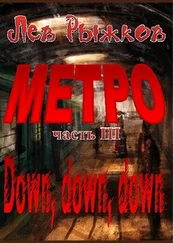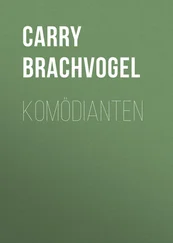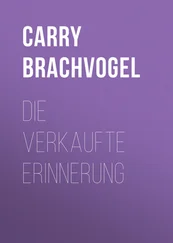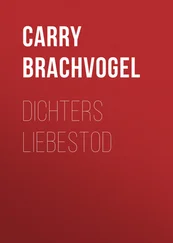Dr Murphy tries to get my attention by moving suddenly. But I keep looking at the paintings.
‘Do you like them?’
‘I like Bruegel,’ I say, hoping like mad I’m right.
‘Well, well. Nobody mentioned that you were an art expert.’
‘I am,’ I say. ‘I’m very interested in art.’
Lying like this makes me want to laugh. I pick the big stapler off his desk and move it around on my knee to stop myself from grinning.
‘Perhaps we can return to that later. First I’m going to ask you some questions and when we’ve done what needs to be done we should have a much better picture of … a much better idea of your state of mind. Is that all right with you?’
He seems nervous; maybe he thinks I’ll throw the stapler at him. Maybe I should make him smile by telling him about the world’s fastest psychiatrist, Dr Albert L. Weiner, who treated more than forty patients in a day in his rooms and used electroshock and muscle relaxants. But the needles he used were not properly sterilised and in 1961 he was imprisoned on twelve counts of manslaughter.
I put the stapler back on the table.
‘First of all, how do you feel today? Are you a little better than you were in Dublin? At the time of the incident?’
‘I feel good,’ I say.
I don’t know how I feel, except that I feel very awake, as though I’d have no trouble recalling anything I’ve ever read. And I feel better than I did when my mother left my room in the middle of the night. I feel good about the fact that I lied about being an art lover and that Dr Murphy cannot control me even though he thinks he can.
‘How do you feel now about what happened with your mother?’
A few thin hairs stick out of the balding pink circle at the top of his head, and I can hear his breathing, raspy and wet. ‘I think I feel like … I feel like it wasn’t real. I feel like somebody else did it. I feel like I was in a film. I feel like she wasn’t my mammy and she was somebody I didn’t know.’
Dr Murphy sits up and moves into a position so different from the first that it shocks me. He leans back in his chair, as far back as the chair will allow, his arms behind his long, narrow head, and I am woken by this sudden change as though the curtains have been opened in a dark room. And I see him as though for the first time. This must be a technique of some kind.
‘Are you aware that you tried to kill your mother? Were you conscious of your actions then and are you conscious of them now?’
I don’t move.
He moves forward again.
‘No,’ I say. ‘I just said. None of it felt real. I felt like I wasn’t me. I felt like I was somebody else.’
‘Who were you, then, if you weren’t you?’
‘Somebody else. I didn’t know who, just not me.’
‘But you felt you were human nevertheless. You were a human boy.’
‘Well, I wasn’t an animal. I wasn’t a dog or a sheep, was I?’
‘I can hear that you are angry. Do you think my questions are unfair?’
‘No.’
He stands up. ‘Would you like a glass of water? Or a fizzy drink?’
‘OK. Please.’
‘Which? The water or the fizzy drink?’
‘A Fanta.’
‘I only have Club Orange, will that do?’
He opens the fridge (its door is behind a wood panel) and takes out a bottle of Club Orange, then he offers me a box that contains hundreds of paper straws with bendable tops.
I choose a blue one.
‘Blue for a boy,’ he says.
I frown.
‘While you drink your fizzy drink, I’m going to ask some questions and the most important thing is that you should answer them truthfully. Can I ask you to give me your word that you will answer truthfully?’
‘Yes.’ And I will.
He sits down behind his desk, this time in a normal position, legs under the desk, pen in hand poised over a blank sheet of paper. ‘OK. Are you ready?’
‘Yes.’
‘Are you able to ignore physical pain?’
‘Yes. Sometimes.’ I think of making my head bleed and not feeling it.
‘Are you ever not sure whether you have done something or only thought about it?’
He is in a hurry and doesn’t seem to care about the answer. If I wasn’t telling the truth, his lack of attention would bother me less, but since I’m telling the truth I don’t understand why he seems so uninterested.
‘Yes. Sometimes I’m confused like that, especially during the night.’
‘Do you spend time staring into space?’
‘A lot. But I’m thinking, not just staring. I’m always thinking when I’m staring.’
‘Are you ever not sure whether an event happened or was a dream?’
‘No,’ I say. ‘That’s never happened.’ Now I have been inconsistent.
He looks up from the desk and coughs. ‘Do you ever not remember important events in your life?’
‘I can’t remember being born or when I was a baby.’
‘What about events in the past six or seven years?’
‘I don’t remember my first Holy Communion. I only know what happened because there are photos and because Mammy tells me what happened.’
Suddenly he is interested. He stands up and walks to the smaller desk near his filing cabinet and the fridge. He stands with his back to this smaller desk and puts his clasped hands in front of his belt buckle.
‘Could something bad have happened that day that you don’t remember?’
‘How would I know, if I can’t remember?’
I stand, too, and offer him my bottle of Club Orange, but he refuses it by waving his hand.
‘Please, John. Sit down.’
I sit and he sits, back behind his big, glass-topped desk.
‘Do you ever find notes or drawings that you must have done but don’t remember doing?’
‘Yes,’ I lie.
‘Do you hear voices inside your head?’
Shouldn’t he want to know more about the drawings before he moves to the next question? ‘Only my own. Is that what you mean?’
‘Do other people and objects sometimes not seem real to you?’
This is a good question. I need to think about this for a while; about what ‘real’ means. ‘No. Yes. Sometimes people. Like my mother. She didn’t seem real before it happened or during, but after she did. After it happened, she seemed real again.’
I swallow and stop talking.
‘Do you want to say any more about this?’
‘No.’
‘It might help. To say more might help. This is important.’
I lower my head and don’t speak.
‘Well?’
‘No.’
‘Do you ever feel as though your body is not your own?’
‘That’s a bit stupid.’
‘What’s your answer?’
‘No.’
‘Do you ever not recognise your own reflection in the mirror?’
‘No.’
He stands up and I hope it’s time for me to go home. I’m very hungry.
‘All right, John. You did well. You thought about your answers and you were very patient. I’m going to leave you alone now for a while. I’m going to go into another room and chat to your mother. Are you happy to sit here for a few minutes?’
‘Yes.’
He leaves and locks the door behind him, and then I notice the bars on the windows and my stomach turns. It seems unfair somehow; he ought to have told me he was going to lock me in and, because I know I’m locked in, I want to get out.
When he doesn’t come back after ten minutes, I look for something to eat in his fridge. There’s a pat of butter and an apple and nothing else. I eat the butter while I sit and read some pamphlets and articles about child suicide, but none of the notes say anything about the ages of these children, and I wonder how old the youngest suicide was, and how they did it.
I get bored. He has me waiting for half an hour. I would like to talk to somebody.
I take off my shirt and look at my arm. There it is — Mr Roche’s phone number.
Читать дальше
